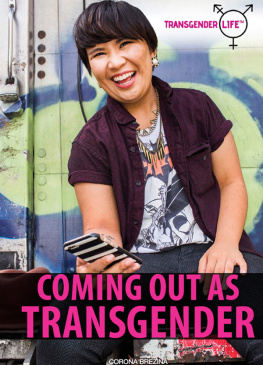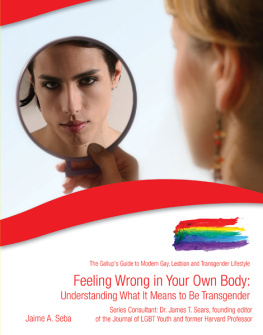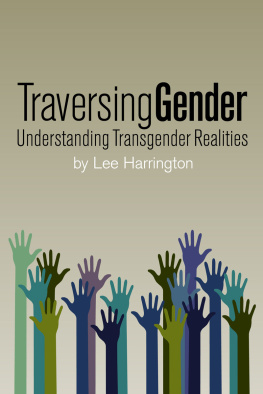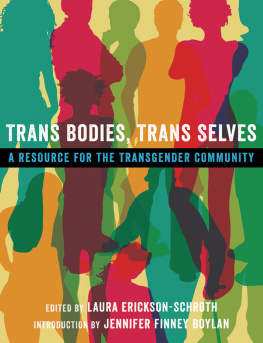Activism by transgender celebrities such as actress Laverne Cox has helped raise public awareness and dispel misconceptions about trans people and transgender issues.
Some people want to use every possible means to correspond to their affirmed gender. Others are comfortable with a gender expression that involves both male and female aspects. After all, plenty of cisgender people have traits or interests that are typically associated with the opposite gender. Theres no reason that trans people should feel compelled to restrict their gender identity or expression to fit a narrow concept of woman or man.
Many trans people talk of how they knew from a young age that they didnt correspond with their birth-assigned gender and rebelled against gender norms. Young boys demanded to wear pink shirts showing images of their favorite cartoon princesses. Young girls refused to wear dresses. During adolescence, when teens go through puberty, clothes and other signifiers of gender expression become more important. A teenage trans person may be trying out the gender role that they plan to take on as an adult.
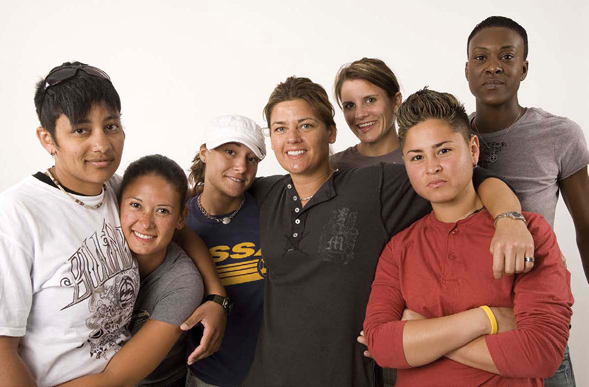
Even as they try to fit in with peers, todays young people respect and appreciate diversity of race, ethnicity, gender, religion, ideology, and gender identity in the people around them.
Some trans people making a social transition to their affirmed gender choose to accentuate certain traits associated with that gender. Trans women may experiment with makeup; trans men might bind their breasts. Trans people may begin to try out clothing of the opposite gender and encounter challenges in finding the ideal pieces. Trans men sometimes have difficulty in finding mens clothing in their sizes, and trans women sometimes require larger shoes than are widely available. Hairstyles also provide a means of self-expression and an opportunity for experimentation.
Trans people also have to navigate a new set of expectations in social settings. You might find that you relate differently with your friends of both genders through no fault of your own. Many trans people discover that people interact differently when theyre with a group of friends of the same gender than when theyre in a mixed gender group. Because of social expectations, girl talk and guy talk really are two different kinds of communication. Likewise, trans people who have fully transitioned to their affirmed gender report that people they encounter in their everyday lives treat them differently depending on their perceived gender.
Dating can be stressful for most teens, and being transgender adds another complication. Whether your partner is cisgender or trans, clear communication can prevent misunderstandings. If youre not openly out, you will have to disclose your transgender status at some point in the relationship. Many trans people choose to disclose this soon after becoming involved with a partner.
As you work your way through your social transition and gain confidence in your gender expression, dont neglect your schoolwork and interests, whether youre into sports or theater. Personal and group activities will give you an opportunity to grow as a human being, spend time with the friends who supported you as you came out as transgender, and cultivate new friends, perhaps as an openly trans teen.
AN ONGOING JOURNEY
During adolescence, puberty begins to bring about drastic changes in teens bodies. These include development of visible traitsgirls develop breasts; boys acquire facial hair, Adams apples, deeper voices, and more masculine facial structures. These are all features that transgender people may choose to have surgically altered later in life. Some transgender teens choose to delay the onset of puberty by taking hormones called puberty blockers. The effect is reversible, and puberty resumes once the blockers are stopped. Delaying puberty gives trans teens an extended opportunity to explore their gender identity before physical changes occur.
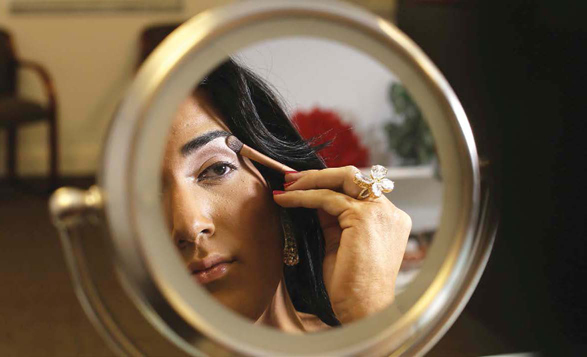
As a teen, Andii Viveros fought for transgender rights and was accepted as female by her parents and peersshe was even elected prom queen.
WHATS IN A NAME?
Most trans people take new names when they come out. It can represent a new beginning or a transformation, and trans people sometimes refer to their original names as their dead names. Many people choose a new name thats related to their original Christopher to Christine, for examplebut theres no single formula for choosing a new name. Sometimes people pick a common or gender-neutral name so that they wont stand out, while others choose a name that emphasizes their individuality. Trans people might opt for a name that is a tribute to someone they admire or one that reflects their ethnic origins. Some trans people say that theyve identified themselves by a specific name privately for a long time.
Sometimes trans people choose to change their surnames as well as their first names. There are numerous reasons they might do so. For example, they may want to distance themselves from their old name out of concern for safety or privacy. Maybe they just want a fresh start or like the way their new name sounds. Regardless, legally changing both first and last names for any reason (other than fraud) is not a difficult process.
In most cases, parents have control over a teens medical decisions. As you come out as transgender and begin to transition socially, do your best to keep your parents informed about how youre doing. Your medical dealings will proceed more smoothly if your parents are supportive and knowledgeable about transgender youth issues and options. Remember, there are possible risks, complications, and side effects to all medical interventions.
Many transgender people who wish to undergo a medical transition are in a hurry to complete the process so that they can live as their authentic selves. But a full physical transition takes a long time and requires many separate steps. Most doctors involved in the process follow guidelines known as the Standards of Care developed by the World Professional Association for Transgender Health. These guidelines direct medical professionals to accepted medical options that emphasize the well-being and self-fulfillment of transgender people during their transition.

